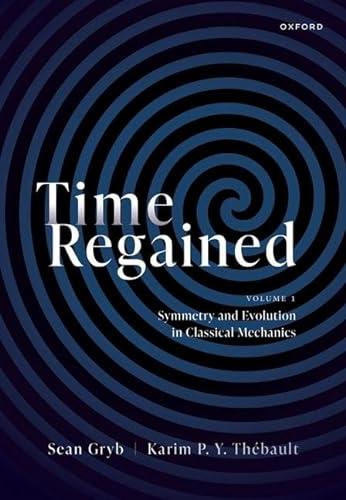Fundamentals SECTION 1
Another random document with no related content on Scribd:
Handy and this spruce young man, Strothers, came in to ask our cash selling-price for the Tyneshire Glen, which is laid up in the East India Docks. We have no interest in the vessel beyond representing the owners, who want to get rid of her.”
“And did you give the precious pair of two-spots a price on her?” blandly inquired O’Shea.
“I offered them the Tyneshire Glen for twenty-four thousand pounds as she stands,” replied Huntley. “It’s all she’s worth. She is a big steamer, almost five thousand tons, but she will need a lot of repairs. Captain Handy claimed that he had found a possible buyer in whose interests young Strothers was acting. Of course we were willing to pay Handy a decent commission if the deal went through.”
O’Shea looked sidewise at Johnny Kent, who, on occasions, was bright enough to see through a hole in a grindstone. They kept their thoughts to themselves, and O’Shea commented non-committally:
“Of course Captain Handy is entitled to a commission if he finds ye a customer for the steamer, George. ’Tis an honest chance for the poor divil to pick up a few dollars. And so the young man, Strothers, came back this morning? Do I show too much curiosity in asking what he had to say?”
“You are welcome to all I know. He told me that the gentleman whose interests he represented had inspected the Tyneshire Glen yesterday and thought she would answer his purpose. The price was satisfactory and he would like a three-days’ option, which I was very willing to give him.”
“And the price was still twenty-four thousand pounds?” violently put in Johnny Kent with a snort as if his steam were rising.
“Precisely twenty-four thousand pounds, or one hundred and twenty thousand dollars of your Yankee currency or thereabouts. Are you thinking of buying her yourself, Johnny?” said Huntley with a broad smile.
“Not on your life,” was the fervent response. “I’d be afraid to sneeze on board of her in the docks for fear her rivets would fly off.”
“Oh, she isn’t as bad as all that. A well-built steamer is the TyneshireGlen, with lots of service in her.”
“What she needs is a new hull, boilers, and engines,” grunted Johnny. “Say, George Huntley, did this young man, Strothers, mention anything about buyin’ the steamer for a king that is roamin’ around London without any tag to him?”
“A king!” ejaculated the ship-broker, blinking like an astonished owl. “Are you chaps raggin’ me?”
“Maybe the joke is on us, George, or else Cap’n Mike and me have been seein’ visions and hearin’ things that ain’t so.”
Huntley cast an appealing glance at O’Shea, who said:
“’Tis evident that ye are not acquainted with our particular king, George. You do not move in royal circles. We will tell ye the answer later. About this young man that calls himself a baron. Did he leave any address behind him?”
“Yes. He is staying at the Carleton. If the option expires I shall take it for granted that he doesn’t want the steamer. If he pays down the cash I shall be ready to make out the papers and give Captain Handy his commission. Now you ought to tell me why you are so keen on knowing all about the business. If you keep mum, you are a pair of blighters and no friends of mine.”
O’Shea hauled Johnny Kent to his feet and remarked:
“We thank you kindly, George. You are a good-natured man and we have made a nuisance of ourselves. ’Tis the honest truth that we know very little more about this young man and the Tyneshire Glen than ye know yourself. But what we do know we will first investigate.”
“You are conspirators born and bred,” laughed Huntley, rather pleased to have an ordinary business transaction wrapped in
romantic mystery. “Come and dine with me as soon as you have unravelled the plot.”
They straightway betook themselves to the nearest public-house, where in a quiet corner a council of war was convened. It was obvious that they had run athwart a scheme to defraud the confiding purchaser of the Tyneshire Glen. And their sympathies went out strongly to the royal victim. Whether or not he was a real king was beside the mark. He was very much the gentleman, and he had trusted too much in the loyalty and integrity of that enterprising young man who was called the minister of finance.
“’Tis as plain as the big nose on that red face of yours, Johnny,” exclaimed O’Shea. “The two crooks are standing in together. Captain Handy recommends the ship as all right. This Baron Frederick Martin Strothers backs him up and advises His Majesty to buy her. The two blackguards get a price of twenty-four thousand pounds from George Huntley, and then tell this innocent potentate that the price is thirty thousand pounds. The difference is six thousand pounds— thirty thousand dollars—which this pair of land-sharks will split up and stick in their own pockets. And they will doctor the bill of sale so the poor deluded monarch will never know what happened to him.”
“That was what we heard ’em say in the Jolly Mermaid, Cap’n Mike. The price was thirty thousand pounds.”
“’Tis me opinion that a minister of finance like this could bankrupt a kingdom, give him time enough,” said O’Shea. “He is working the game for all it’s worth. He will loot the treasury as long as it looks safe and easy, and then he will resign his what-do-ye-callit—his portfolio—and leave his buncoed Majesty to figure out the deficit.”
“That poor king deserves to be delivered from his lovin’ friends,” replied Johnny Kent. “What’s the orders now?”
“We will ring up full speed ahead and find this king. If the minister of finance is at the Carleton Hotel, ’tis a good bet that His
Majesty is not far away. That busy young man will not separate himself from a good thing.”
The fashionable Carleton was unfamiliar territory to the inquisitive mariners, but they strolled boldly through the corridors until they fetched up in front of a desk presided over by an immaculate clerk with a languid manner who appeared indifferent to their wants. After waiting several minutes for some recognition, Captain Michael O’Shea sweetly remarked:
“Will ye answer a civil question or will I climb over the counter and jolt you wide-awake?”
The languid person looked attentively at the resolute features of the speaker and hastily answered:
“Beg pardon—beg pardon—what can I do for you, sir?”
“Tell me if a king is stopping in this hotel of yours, and does he have a minister of finance called Baron Strothers?”
“Ah, you mean His Majesty, King Osmond of Trinadaro,” and the clerk delivered these resounding syllables with unction. “Yes, he is a guest of the hotel.”
“He is a real one, do you get that?” soberly whispered O’Shea to his comrade before he again addressed the clerk.
“We wish to see him on important business. We will write our names on a card.”
“Baron Strothers receives such callers as are personally unknown to His Majesty,” the clerk explained.
“We do not wish to see the young man,” said O’Shea.
“My orders are to send all cards and messages to him,” persisted the clerk.
The two visitors drew apart from the desk and put their heads together.
“The minister of finance will not let us get within a cable’s length of his boss if he thinks we are seafarin’ men,” whispered O’Shea.
“The swindler may have took notice of us in the Jolly Mermaid,” growled Johnny Kent. “We might send up a card and make headway as far as this Strothers person. Then I could knock him down and sit on his head while you rummaged the royal apartments and found the king.”
“Your methods might strike these hotel people as violent, Johnny. You’re a good man at sea, but I would not call ye a diplomat. Anyhow, we will take a chance of running the blockade that this crooked minister of finance has established to prevent honest men from talking to his employer.”
Returning to the desk, O’Shea picked up a pen and wrote on a blank card:
“Captain Michael O’Shea and John Kent, Esq., U. S. A., to see KingOsmondonamatterthathewillfindinteresting.”
Promptly in answer to this message came word that Baron Strothers would see the gentlemen. A hotel attendant conducted them to a suite on the second floor. At the threshold of a sort of anteroom they were met by the brisk, self-possessed young man, who gazed sharply at the sunburnt strangers, hesitated a trifle, and invited them to enter. Offering them cigars, he bade them be seated, and again scrutinized them as if striving to recall where he might have seen them elsewhere.
Captain O’Shea, at his ease in most circumstances, and particularly now when he held the whip-hand, asked at once:
“Are we to have the pleasure of paying our respects to His Majesty?”
“You Americans are so delightfully informal,” smiled the minister of finance. “An audience is arranged beforehand if I consider it worth while.”
“But this king of yours takes a special interest in ships and sailors,” suggested O’Shea. “And we have information that he will find useful.”
Baron Frederick Martin Strothers changed color just a trifle and his manner was perceptibly uneasy as he explained:
“I am awfully sorry, but he is not in at present. He will be disappointed, I’m sure. You are shipmasters or something of the sort, I take it.”
“You guess right,” was the dry comment of O’Shea. “I have heard that ye are fond of talking to seafaring men yourself.”
The shot went home. The young man moved in his chair and looked painfully uncomfortable. Nervously twisting a cigar in his fingers, he replied:
“Ah, yes. Now I know. You must have seen me at the East India Docks.”
“There or thereabouts, but no matter,” said O’Shea. “His Majesty is not in, you say. And when will he be in the hotel again?”
“Not for several hours. He went out with the minister of foreign affairs to keep an important appointment. Will you state your business to me? That is the customary procedure.”
Johnny Kent was for denouncing the young man to his face, but O’Shea nudged him and smoothly made answer:
“It would please us better to see the king himself. We can come again, or we can look for him on his way in and out of the hotel.”
The young man could not dissemble signs of impatience to be rid of these pertinacious intruders.
“If you have a ship to sell, or you are looking for positions, this is only wasting time,” said he. “I presume you heard something of our errand among the docks.”
“Yes, we have heard of it,” and O’Shea bit off the words. “Well, Johnny, shall we go below and wait till His Majesty heaves in sight?
This minister of finance will give us no satisfaction. And I am not used to dealing with understrappers.”
“You are impertinent!” cried the young man. “I have been as courteous as possible. You will leave at once, or I shall ask the hotel management to put you out.”
Up from a chair rose the massive bulk of Johnny Kent, and his ample countenance was truculent as he roared:
“You’ll throw us out, you impudent son of a sea-cook? No, Cap’n Mike, I won’t shut up. I ain’t built that way. Diplomacy be doggoned. I’m liable to lose my temper.”
“’Tis a large-sized temper to lose, and I hereby hoist stormsignals,” said O’Shea with a grin as he neatly tripped the minister of finance, who was endeavoring to reach an electric push-button.
The fervid declamation of Johnny Kent must have echoed through the apartments. It sufficed to attract the notice of an erect, elderly gentleman in another room who opened a door and stared curiously at the strenuous tableau. At sight of the kindly, refined face with the snowy mustache and imperial, O’Shea gleefully shouted:
“The king, God bless him! So this bright young minister of finance was a liar as well as a thief!”
Comically abashed, Johnny Kent mumbled an apology for making such an uproar, at which the elderly gentleman bowed acknowledgment and said to the perturbed and rumpled Strothers:
“My dear baron, will you be good enough to explain?”
“These ruffians insisted on seeing you, Your Majesty, and when I tried to discover their business they called me names and assaulted me,” sputtered the young man in a heat of virtuous indignation.
“He was afraid of the truth,” cried O’Shea. “We came to tell Your Majesty that he has cooked up a job to cheat ye out of six thousand pounds, and we can prove it up to the hilt. We caught him with the goods.”
“That sounds a whole lot better to me than diplomacy,” approvingly exclaimed Johnny Kent.
Bewildered by the vehemence of these outspoken visitors, King Osmond I of Trinadaro turned to the sullen minister of finance and inquired, still with his placid kindliness of manner:
“These men do not look like ruffians, my dear baron. What are their names, and who are they? And what is the meaning of this grave charge they bring against your integrity?”
“I am O’Shea, shipmaster, hailing from the port of New York,” spoke up the one.
“I am Johnny Kent, chief engineer to Captain Mike O’Shea,” said the other, “and I hail from the State o’ Maine. And we can show you our papers. Wedidn’t lose ’em in the Bay of Biscay.”
Strothers stood biting his nails and shifting from one foot to the other, for once stripped of his adroit, plausible demeanor, nor could he find, on the spur of the moment, the right word to say. The royal personage said it for him.
“I think you had better retire. I wish to hear what Captain O’Shea and Mr. Kent may have to tell me.”
The amiable monarch was unconsciously swayed by the virile personality of Captain O’Shea, who dominated the scene as though he were on the deck of his own ship.
Baron Frederick Martin Strothers made a last attempt to protest, but Johnny Kent glared at him so wickedly and O’Shea moved a step nearer with so icy a glint in his gray eye that there was a moment later a vanished minister of finance.
The etiquette of courts troubled O’Shea not in the least as he cheerily yet respectfully suggested to the perplexed elderly gentleman:
“Now, King Osmond, if you will please sit down and let us talk things over with ye as man to man, we’ll tell you how it happened.”
The personage obediently did as he was told, nor could he feel offended by the shipmaster’s boyish candor. O’Shea chewed on his cigar and his eyes twinkled as he glanced at the stubborn visage of Johnny Kent, which was still flushed. His Majesty began to get his wits together and to wonder why he had permitted this brace of total strangers to take him by storm. O’Shea broke into his cogitations by explaining:
“You are surprised that ye chucked the trusted minister of finance out of the room and consented to listen to us at all. In the first place, we are not askin’ anything of you. What I mean is, we felt bound to put you next to the dirty deal that was framed up to rob ye.”
“We saw you in the Jolly Mermaid tavern, and we liked your looks,” ingenuously added Johnny Kent. “We decided to do you a good turn, whether we ever saw the color of your money or not.”
“And we didn’t like the cut of the jib of your minister of finance,” resumed O’Shea. “And we were dead sure that Captain Handy was rotten.”
King Osmond earnestly interrupted:
“But I have had all the confidence in the world in Baron Strothers, and as a British sailor of the tarry breed, Captain Handy——”
“The two of them are tarred with the same brush,” exclaimed O’Shea. “They fixed it up between them to pay twenty-four thousand pounds for the Tyneshire Glen and sell her to you for thirty thousand. ’Tis a simple matter to produce the evidence. Send a messenger to Tavistock & Huntley in Leadenhall Street. They named the price to Captain Handy and your precious minister of finance. ’Tis a clear case.”
“You can buy her yourself from George Huntley, and he’ll be darn glad to get his price,” chimed in Johnny Kent. “That ought to prove it. But if you’ll listen to me, you’ll have nothin’ to do with the TyneshireGlen.”
King Osmond’s faith in human nature had been severely jarred, but somehow he could not doubt the statements of these rugged men who drove their words home as with a sledge-hammer. Toward the graceless minister of finance he felt more sorrow than anger as he wove together in his mind this and that circumstance of previous transactions which should have made him more vigilant. But the culprit was the son of a dear friend, and his credentials had been impeccable.
“I shall obtain from Tavistock & Huntley confirmation of your story, as you suggest,” he slowly replied to O’Shea. “In the meantime I wish you would tell me about yourselves.”
“We are looking for big risks and big wages,” said O’Shea with a smile. “Johnny Kent and I are better known in the ports of the Spanish Main than in London River. We have made voyages to Hayti and Honduras and Cuba without the consent of the lawful governments, and we know our trade.”
King Osmond I reflectively stroked his white imperial, and his face assumed an expression of vivid interest. These men were different from Captain Handy. They would neither cringe nor lie to him, and they looked him squarely between the eyes.
“Will you be good enough to come into my own rooms?” said he. “We shall find more privacy and comfort. I should like to hear of your adventures along the Spanish Main.”
With a courteous gesture he showed them into a much larger and more luxurious room which was used as a library or private office, inasmuch as a large flat-topped desk was strewn with books, pamphlets, and documents, and more of them were piled on tables and on shelves against the walls. As temporary headquarters for royalty at work, the room suggested industry and the administration of large affairs.
So friendly and unconventional was the reception granted them that Captain O’Shea and Johnny Kent were made to feel that their intrusions demanded no more apologies. Their curiosity fairly
tormented them. It was on the tips of their tongues to ask the host what kind of a kingdom was his, and where it was situated, but this would be rudeness. O’Shea took note of several admiralty charts on the desk, two of them unrolled with the corners pinned down, and a rule and dividers for measuring distances.
While O’Shea talked, Johnny Kent let his eyes wander to a small table at his elbow. It was covered with magazines, government reports, and newspaper clippings. One of the latter was so placed that he was able to read it from where he sat, and with absorbed interest he perused the following paragraphs:
Colonel Osmond George Sydenham-Leach, of the ancient Norfolk family, has lived on the Continent for the last dozen years, and is better known to the boulevards of Paris than to London. He was never considered eccentric until recently when his claim to the island of Trinadaro in the South Atlantic as a sovereign realm aroused much interest and amusement. He assumed the title of King Osmond I.
It is said that he has created an order of nobility, and that the insignia of the Grand Cross of Trinadaro have been bestowed upon the fortunate gentlemen composing his cabinet and coterie of advisers. A Court Circular is expected to appear shortly, and a diplomatic service will be organized.
Until His Majesty is ready to sail for Trinadaro to occupy his principality, the royal entourage will be found in the state apartments of the Hotel Carleton. Elaborate preparations are in progress for colonizing the island of Trinadaro, and a ship-load of people and material will leave London in a few weeks.
King Osmond I has a very large fortune. He is unmarried, and his estates, at his death, will pass to the children of his only brother, Sir Wilfred Sydenham-Leach of Haselton-on-Trent. The kinfolk of His Majesty are alarmed, so it is reliably reported, lest his wealth may be squandered on this curiously mediæval conception of setting up an independent principality upon an
unproductive, volcanic island in mid-ocean which no nation has taken the trouble to annex.
Slowly and carefully Johnny Kent possessed himself of this information with never a flicker of a smile. The solution of the mystery of King Osmond I impressed him as neither grotesque nor curiously mediæval. In all London the King of Trinadaro could not have found two men of readier mind to fall in with his project and pretensions. To play at being a king on a desert island, to have the means to make it all come true—why, thought Johnny Kent, and he knew O’Shea must instantly agree with him, any man worth his salt would jump at the chance.
He was anxious to pass the tidings on to his comrade, and when the conversation slackened he edged in:
“We must be on our way, Cap’n Mike. His Majesty is goodhearted to listen to us, but it ain’t polite to talk his ear off.”
With this speech went so elaborate a wink that O’Shea comprehended that the engineer had something up his sleeve. Their host cordially declared that he must see them again, and made an appointment for ten o’clock of the next forenoon. They took their departure after friendly farewells and steered a course for Blackwall and the tavern of the Jolly Mermaid.
O’Shea was as delighted as a boy to learn that Osmond I was about to found an island kingdom. It was a more attractive revelation than if he had been discovered to be the inconsequential ruler of some effete little domain of Europe. And if one planned to set himself up in business as a sovereign, it was proper to use all the pomp and trappings and ceremony that belonged to the game.
“If he is to have a navy,” cried O’Shea as he pounded his friend on the back, “I know where he can find an admiral and a fleet engineer.”
“Not so fast, Cap’n Mike. I have a notion that he’ll have his own troubles gettin’ to his kingdom. Any man that can be buncoed as
easy as he was is liable to have all his playthings taken away from him before he has a chance to use ’em. I’ll feel safer about him when he gets clear of London River.”
Before seeking the royal audience next morning they went to Leadenhall Street to see George Huntley. The ship-broker greeted them indignantly.
“You would try to hoodwink me, would you?” exclaimed he. “I have found out who your mysterious king is. I received a letter from him last night, asking information about the price of the Tyneshire Glen. I had no idea it was this crazy Colonel Sydenham-Leach that calls himself ruler of Trinadaro.”
“Own up like a man, George,” shouted O’Shea. “Ye would like nothing better than to be this kind of a king yourself.”
“You have read my thoughts like a wizard. But, confound you, you have spoiled the sale of a steamer for me. How about that?”
“We have tried to keep an estimable king from going to Davy Jones’s locker in a floating coffin that ye call the Tyneshire Glen,” severely retorted O’Shea. “Have ye any steamers that will pass honest men’s inspection?”
“Plenty of them,” promptly answered Huntley.
“Then we will look at two or three of them to-day, after we have paid our respects to His Majesty. We will not let him be cheated out of his eye-teeth. We have decided to protect him. Isn’t that so, Johnny?”
“He needs us, Cap’n Mike.”
Huntley became serious and took them into the rear office before he confided:
“I don’t know, I’m sure, whether you chaps are joking or not. However, here is a bit of news for you on the quiet. I met a friend of mine, a barrister, yesterday. We had luncheon at the Cheshire Cheese and something or other set him to talking about this
Sydenham-Leach affair. It seems that the lawyers are quite keen about it. The family relations are planning to kick up a devil of a row, to bring proceedings under the lunacy act, and prevent this King Osmond from sailing off to his silly island of Trinadaro. They hate to see a fortune thrown away in this mad enterprise, as they call it.”
O’Shea was righteously wrathful as he flung out:
“Would they interfere with a gentleman and his diversions? Hasn’t he a right to spend his money as he pleases? Have ye ever seen him, George? He is a grand man to meet, and ’tis proud we are to be his friends.”
“Oh, I imagine they will have a job to prove he is insane,” said Huntley. “But they may make a pot of trouble for him.”
“I suppose they can pester him with all kinds of legal foolishness and haul him before the courts, and so on,” agreed O’Shea. “It would break his heart and spoil all his fun. ’Tis an outrageous shame, George. What is the system in this country when they want to investigate a man’s top story?”
“I asked the barrister chap,” replied Huntley. “The friends of the person suspected of being dotty, usually his near relatives, lay the case before one of the judges in lunacy, and he orders an inquiry, which is held before a master in lunacy. Then if the alleged lunatic demands a trial by jury he gets it. If he can’t convince them that he is sound in the thinker, his estate is put in charge of a committee duly appointed by law.”
O’Shea listened glumly and glowered his intense displeasure. If the law could interfere with a man who wished to be king of an island which nobody else wanted, then the law was all wrong.
“And these indecent relatives who want his money will wait and spring a surprise on him,” said the aggrieved shipmaster. “They will take his ship away from him and knock all his beautiful schemes into a cocked hat.”
“I imagine he would not be allowed to leave England if the proceedings were started,” said Huntley.
Johnny Kent, who had been darkly meditating, aroused himself to observe explosively:
“We’ll get him to sea in his ship whenever he wants to sail, and the relatives and the judges and the masters in lunacy be darned. It ain’t the first time that you and me have broken laws in a good cause, Cap’n Mike. You come along with us, George Huntley. We’re on our way to have a confab with His Majesty, and maybe you can do some business with him right off the reel. He ought to load his ship and head for blue water as quick as the Lord will let him.”
IIBehold, then, the pair of exiled Yankee mariners stanchly enlisted on the side of King Osmond I of Trinadaro, against the designs of all who would thwart his gorgeous and impracticable purposes. That his rank and title were self-assumed and his realm as yet unpeopled impressed these ingenuous sailormen as neither shadowy nor absurd.
King Osmond I was an elderly gentleman of a singularly guileless disposition, and the notoriety attending his unique project had caused him to be surrounded by persons who knew precisely what they wanted. Of these the vanished minister of finance, Baron Frederick Martin Strothers, of the brisk demeanor and the red waistcoat, had been a conspicuous example. It was a rare piece of good fortune for the amiable monarch that there should have come to his aid two such hard-headed and honest adventurers as O’Shea and Johnny Kent.
As the result of several interviews they were engaged to select a steamer and to take charge of her for the voyage to Trinadaro. Their qualifications were warmly indorsed by the well-known ship-broking
firm of Tavistock & Huntley, of Leadenhall Street. The managing partner, that solid man with the romantic temperament, took the keenest interest in every detail of the picturesque enterprise. It would have been a temptation not easy to resist if King Osmond had offered him the place of minister of marine, with the bestowal of the insignia of the Grand Cross of Trinadaro.
The august personage was prodigiously busy. Several secretaries and stenographers toiled like mad to handle the vast amount of clerical work and correspondence. The king planned to carry with him a sort of vanguard of subjects, or colonists, who were to erect buildings, set up machinery, till the soil, prospect for mineral wealth, and otherwise lay the foundations of empire. These pioneers were largely recruited from his own estates and villages in Norfolk, and formed a sturdy company of British yeomanry.
Captain Michael O’Shea was never one to smother his opinions from motives of flattery or self-interest, and what information about Trinadaro he had been able to pick up on his own account was not dyed in glowing colors.
“I have not seen the island meself, Your Majesty,” said he, “but the sailing directions set it down as mostly tall rocks with a difficult landing-place and a dense population of hungry land-crabs as big as your hat. And if it was any good, would not some one of these benevolent Powers have gobbled it up long ago?”
King Osmond pleasantly made answer to such objections.
“Several years ago I made a long voyage in a sailing-ship on account of my health, Captain O’Shea, and we touched at Trinadaro to get turtles and fresh water. It was then that I conceived the idea of taking possession of the island as an independent principality. Although it has a most forbidding aspect from seaward, there is an inland plateau fit for cultivation and settlement. It contains the ruined stone walls of an ancient town founded by the early Portuguese navigators. And it is well to remember,” concluded the monarch of Trinadaro with a whimsical smile, “that available domains
are so scarce that one should not be too particular. Trinadaro appears to have been overlooked.”
“’Tis a rule that the Christian nations will steal any territory that is not nailed down,” was the dubious comment of O’Shea. “They must have a poor opinion of Trinadaro, but, as ye say, ’tis about the only chance that is left for a king to work at his trade with a brandnew sign over the door.”
Johnny Kent spent most his time down river among the London docks. Wherever sea-going steamers were for sale or charter his bulky figure might have been seen trudging from deck to engineroom.
At length, with the royal approval, O’Shea had the purchase papers made out for the fine steamer Tarlington, which was berthed in a basin of the East India Docks. She was a modern, well-equipped freighter of four thousand tons which had been in the Australian trade and could be fitted for sea at a few days’ notice. The transfer of ownership was given no needless publicity. George Huntley attended to that. He had another interview with his friend, the barrister, who hinted at forthcoming events which gravely threatened the peace and welfare of Osmond I and the kingdom of Trinadaro.
O’Shea and Johnny Kent discussed this latest information at supper in the Jolly Mermaid tavern with a platter of fried sole between them.
“’Tis this way,” explained O’Shea. “There is no doubt at all that this grand king of ours will figure in the lunacy proceedings that we heard was in the wind. His relatives are getting greedier and more worried every day. And until the matter is decided one way or another they will use every means the law allows to head him off from spending the good money that belongs to him.”
“And how can they stop him from scatterin’ his coin for these wise and benevolent purposes of his?” demanded the engineer.
“Well, George Huntley says the law will permit them to clap some kind of a restrainin’ order on the ship and hold her in the dock
with the judges’ officers aboard till the proceedings are over. And they can serve the same kind of documents on King Osmond to prevent his chasing himself beyond the jurisdiction of the court.”
“But all this infernal shindy can’t be started unless there’s proof positive that His Majesty intends to fly the coop, Cap’n Mike.”
“Right you are, Johnny, you old sea-lawyer. They can’t bother the king until he is actually on board and the ship is cleared, so the barrister lad tells George.”
“Then they’ll be watchin’ the Tarlington like terriers at a rathole,” exclaimed the engineer.
“No, they won’t,” cried O’Shea with tremendous earnestness. “Do ye mind how we slipped out of Charleston Harbor in the Herculessteamer, bound on the filibusterin’ expedition to Honduras? ’Twas a successful stratagem, and it could be done in London River.”
“Sure it could,” and Johnny Kent chuckled joyously. “And the king needn’t know anything about it.”
“Of course we will keep it from him if we can,” agreed O’Shea. “I will do anything short of murder to keep him happy and undisturbed. And it would upset him terribly to know that he must be smuggled out of England to dodge the rascals that would keep him at home as a suspected lunatic.”
“We’d better put George Huntley next to this proposition of ours,” suggested Johnny. “He itches to be a red-handed conspirator.”
The ship-broker admired the scheme when it was explained to him. Yes, the old Tyneshire Glen which they had so scornfully declined to purchase was still at her moorings, and they were welcome to use her as a dummy, or decoy, or whatever one might choose to call it. O’Shea could pretend to load her, he could send as many people on board as he liked, and put a gang of mechanics at work all over the bally old hooker, said Huntley. If the enemies of King Osmond I took it for granted that the Tyneshire Glen was the
ship selected to carry him off to Trinadaro, that was their own lookout. It was a regular Yankee trick, by Jove!
O’Shea and Johnny Kent took great care to avoid being seen in the vicinity of the Tarlington. Such inspection and supervision as were necessary they contrived to attend to after dark. The king was up to his ears in urgent business and was easily persuaded to leave the whole conduct of the ship’s affairs in their capable hands and to waive preliminary visits to the East India Docks.
O’Shea employed a Scotch engineer, who understood that his wages depended on his taciturnity, to oversee such repair work as the Tarlingtonneeded, and to keep steam in the donkey-boilers.
All signs indicated that the Tarlington was preparing for one of her customary voyages to Australia. Soon the cargo began to stream into her hatches. The ostensible destinations of the truck-loads of cases and crates and bales of merchandise were Sydney, Melbourne, Wellington, Fremantle, and so on. One might read the names of the consignees neatly stencilled on every package. This was done under the eye of Captain O’Shea, who, in his time, had loaded hundreds of boxes of rifles and cartridges innocently labelled “Condensed Milk,” “Prime Virginia Hams,” and “Farming Tools.”
But the place to find roaring, ostentatious activity was on board the old Tyneshire Glen. This rusty steamer fairly hummed. Captain O’Shea visited her daily, and Johnny Kent hustled an engine-room crew with loud and bitter words. It appeared as though the ship must be in a great hurry to go to sea. While they were stirring up as much pretended industry as possible, the question of a cargo was not overlooked. It was shoved on board as fast as the longshoremen in the holds could handle it. Nor did these brawny toilers know that all these stout wooden boxes so plainly marked and consigned to Trinadaro “via S.S. Tyneshire Glen” contained only bricks, sand, stones, and scrap-iron.
They were part of the theatrical properties of Captain O’Shea, who could readily produce a make-believe cargo for a faked voyage
in a steamer which had no intention of leaving port.
The London newspapers showed renewed interest in the schemes and dreams of King Osmond I of Trinadaro. The Tyneshire Glen was visited by inquisitive journalists with note-books and cameras. Captain O’Shea welcomed them right courteously, and gave them information, cigars, and excellent whiskey. They returned to their several offices to write breezy columns about the preparations for the singular voyage of the Tyneshire Glen. So severe are the English libel laws that never a hint was printed of the possible legal obstacles which might bring the enterprise to naught. For purposes of publication, King Osmond I was as sane as a trivet unless a judge and jury should officially declare him otherwise.
Nevertheless, the intimation had reached the newspaper offices that the relatives of Colonel Sydenham-Leach were likely to take steps to prevent him from leaving England. And reporters were assigned to watch the Tyneshire Glen up to the very moment of departure.
Now and then Johnny Kent quietly trundled himself on board the Tarlington, usually after nightfall, and was gratified to find that progress was running smoothly in all departments. So nearly ready for sea was the big cargo-boat that the time had come to devise the final details of the stratagem.
Accordingly, Captain O’Shea went boldly to the custom house, and took out clearance papers not for the Tarlingtonto Australia, but for the Tyneshire Glen to the island of Trinadaro. The chief officer whom he had selected to sail with him held a master’s certificate and the ship was cleared in his name.
As for the Tarlington, which was really to sail while the Tyneshire Glen remained peacefully at her moorings in the East India Docks, O’Shea decided to omit the formality of clearances. As he explained to Johnny Kent:
“The less attention called to the Tarlington the better. Once at sea we will hoist the flag of Trinadaro over our ship, and His
Majesty’s government will give her a registry and us our certificates. ’Tis handy to be an independent sovereign with a merchant marine of his own.”
The services of an employment agency enabled O’Shea to muster several score bogus colonists or subjects of King Osmond, persons of respectable appearance who were glad to earn ten shillings apiece by marching on board the Tyneshire Glenwith bags and bundles in their hands. There could be no room for doubt in the public mind that the eccentric, grandiose Colonel Sydenham-Leach was on the point of leaving his native shores with his people and material to found his island principality.
It seemed advisable to Captain O’Shea to take the Tarlingtonout of the docks late in the afternoon, swing into the river, and anchor until King Osmond should be brought aboard in a tug furnished by George Huntley. There was much less risk of observation in having the royal passenger join the ship after nightfall and away from the populous docks, in addition to which O’Shea preferred to get clear of the cramping stone basins and gates and hold his ship in the fairway with room for a speedy departure in the event of a stern chase.
He artlessly explained that this arrangement would allow the king to spend several more hours ashore in winding up the final details of his business. The unsuspecting Osmond I approved these plans and had no idea that they were part of an elaborate conspiracy to smuggle him out of England under cover of darkness.
As a crafty device to throw the enemy off the scent, O’Shea conceived what he viewed as a master-stroke. George Huntley was called into consultation and promptly sent for a superannuated clerk of his office staff who had been pensioned after many years of faithful service. He proved to be a slender, white-haired man who carried himself with a great deal of dignity, and at the first glimpse of him O’Shea exclaimed delightedly:
“You couldn’t have done better, George, if you had raked London with a comb. Put a snowy mustache and chin whisker on him and he
will pass for King Osmond of Trinadaro with no trouble at all.”
“I think we can turn him into a pretty fair counterfeit,” grinned Huntley. “And when he walks aboard the TyneshireGlenat dusk and all those bogus subjects at ten shillings each raise a loyal cheer, the hoax will be complete. This is the artistic touch to make the job perfect.”
“And what am I to do after that, Mr. Huntley, if you please?” timidly inquired the elderly clerk. “If it’s only a practical joke, I don’t mind——”
“Play the part, Thompson. Acknowledge the homage of the ship’s company and go below at once. Dodge into a state-room. The ship will probably be watched by persons keenly interested in your movements. If they poke a mess of legal documents at you, accept them without argument. The meddlesome gents will leave you alone after that. They will merely keep close watch of the ship to make sure that you don’t run away with her. When you come back to London in the morning, pluck off the false whiskers, and be handsomely rewarded for your exertions. I’ll see that you get in no trouble.”
“It is a bit queer, Mr. Huntley, but you were always a great hand for a lark,” said the clerk. “Thank you, I will do as you say.”
The genuine colonists of King Osmond stole on board the Tarlington, singly, and by twos and threes, some before she pulled out of the docks, others by boat after she swung into the stream. At the same time the imitation voyagers from the employment agency were making as much noise and bustle as possible as they trooped on board the TyneshireGlen.
Captain O’Shea intended to convey the king from the hotel to the Tarlington, but at the last moment he was detained to quell a ruction in the forecastle. George Huntley had been unexpectedly summoned to the Hotel Cecil to see an American millionaire who was in a great hurry to charter a yacht. O’Shea therefore sent a message to His Majesty directing him to have his carriage driven to a
certain landing on the river-front of the East India Docks, where he would be met by the chief officer of the Tarlington and escorted aboard the ship.
Within the same hour, the dignified, elderly clerk by the name of Thompson might have been seen to enter a carriage close by the Hotel Carleton, and those standing near heard him tell the driver to go to the steamer TyneshireGlen.
The chief officer of the Tarlington, waiting near an electric light at the landing-pier, abreast of which the steamer was anchored in the stream, felt a weight of responsibility for the safe delivery of King Osmond, and was easier in mind when he saw a carriage halt within a few yards of him. The window framed the kindly features, the white mustache and imperial, which the chief officer instantly identified. Hastening to assist His Majesty from the carriage, he announced apologetically:
“Captain O’Shea sends his compliments and regrets that he is detained on board. The ship is ready as soon as you are.”
The king murmured a word or two of thanks. The chief officer carefully assisted him to board the tug, which speedily moved away from the pier and turned to run alongside the Tarlington. The important passenger mounted the steamer’s gangway and stood upon the shadowy deck, whose row of lights had been purposely turned off lest his figure might be discernible from shore.
Captain O’Shea was waiting to get the ship under way. It was no time for ceremony. The business of the moment was to head for the open sea, and beyond the reach of the British law and its officers. A few minutes later, Captain O’Shea hastened aft to greet His Majesty and explain his failure to welcome him on board. Meeting the chief officer, he halted to ask:
“Everything all right, Mr. Arbuthnot? Did he ask for me? Did he give you any orders?”
“All satisfactory, sir. The king said he was very tired and would go to his rooms at once.”
“I wonder should I disturb him?” said O’Shea to himself, hesitating. “’Tis not etiquette to break into his rest. Well, I will go back to the bridge and wait a bit. Maybe he will be sending for me. My place is with the pilot till the ship has poked her way past Gravesend and is clear of this muck of up-river shipping.”
The Tarlingtonfound a less crowded reach of the Thames as she passed below Greenwich and her engines began to shove her along at a rapid gait. She had almost picked up full speed and was fairly headed for blue water when the noise of loud and grievous protests arose from the saloon deck. The commotion was so startling that O’Shea bounded down from the bridge and was confronted by a smooth-shaven, slender, elderly man who flourished a false mustache and imperial in his fist as he indignantly cried:
“I say, this is all wrong as sure as my name is Thompson. I never bargained with Mr. George Huntley to be kidnapped and taken to sea. I don’t want to go, I tell you. These people tell me that this steamer is bound to some island or other thousands of miles from here. I stand on my rights as an Englishman. I demand that I be taken back to London at once.”
O’Shea glared stupidly at the irate clerk so long in the employ of Tavistock & Huntley. For once the resourceful shipmaster was utterly taken aback. He managed to say in a sort of quavering stage whisper:
“For the love of heaven, what has become of the real king? Who mislaid him? Where is he now?”
“I don’t know and I’m sure I don’t care,” bitterly returned the affrighted Thompson. “I was an ass to consent to this make-believe job.”
“But how did you two kings get mixed?” groaned O’Shea. “You’re in the wrong ship. Have ye not sense enough to fathom that much? You were supposed to go aboard the Tyneshire Glen, ye old blunderer.”
“The man who drove the carriage told me this was the Tyneshire Glen. I had to take his word for it. How was I to know one ship from the other in the dark? I was told to pretend I was the genuine king, wasn’t I? So I played the part as well as I could.”
“Ye played it right up to the hilt. My chief officer will vouch for that,” and O’Shea held his head between his hands. He sent for Johnny Kent and briefly announced:
“We are shy one king, Johnny. The deal has been switched on us somehow. Our boss was left behind.”
“Great sufferin’ Cæsar’s ghost, Cap’n Mike!” gasped the other. “Say it slow. Spell it out. Make signs if you’re choked up so that you can’t talk plain.”
“The real king went in the discard, Johnny. We’ve fetched the dummy to sea. The one that came aboard was the other one.”
“Then what in blazes became of our beloved King Osmond the First?” cried Johnny.
“You can search me. Maybe his affectionate relatives have their hooks in him by now and have started him on the road to the brain college.”
“It ain’t reasonable for us to keep on our course for Trinadaro without the boss,” suggested the chief engineer. “This is his ship and cargo.”
This was so self-evident that Captain O’Shea answered never a word, but gave orders to let go an anchor and hold the ship in the river until further notice. Then he turned to glower at an excited group of passengers who had mustered at the foot of the bridge ladder and were loudly demanding that he come down and talk to them. They were loyal subjects of the vanished monarch, his secretaries, artisans, foremen, laborers, who ardently desired an explanation. They became more and more insistent and threatened to resort to violence unless the steamer instantly returned to London to find King Osmond.
O’Shea gave them his word that he would not proceed to sea without the missing sovereign, and during a brief lull in the excitement he thrust the bewildered Thompson, the masquerader, into the chart-room and pelted him with questions. The latter was positive that he had directed the cabman to drive to the Tyneshire Glen. And the fellow was particular to stop and ask his way when just inside the entrance to the docks. At least, he had halted his cab to talk to some one who was apparently giving him information. Thompson was unable to overhear the conversation.
“And did ye get a look at this second party?” sharply queried O’Shea.
“The carriage lamp showed me his face for a moment, and I saw him less distinctly as he moved away. He was a young man, well dressed, rather a smart-looking chap, I should say. I think he had on a fancy red waistcoat.”
“Sandy complected? A brisk walker?” roared O’Shea in tremendous tones.
“I am inclined to say the description fits the young man,” said Thompson.
“’Twas the crooked minister of finance, Baron Frederick Martin Strothers, bad luck to him!” and O’Shea looked blood-thirsty. “I will bet the ship against a cigar that he sold out to the enemy. He stands in with the king’s wicked relatives and schemin’ lawyers. And we never fooled him for a minute. ’Tis likely he switched the real king to the Tyneshire Glen, where the poor monarch would have no friends to help him out of a scrape. Strothers bribed the cabmen—that’s how the trick was turned. Just how they got next to our plans I can’t fathom at all.”
“Then it is hopeless to try to secure the king and transfer him to this steamer?” asked Thompson, easier in mind now that he comprehended that he had not been purposely kidnapped.
“Hopeless? By me sainted grandmother, it is not hopeless at all,” cried Captain O’Shea as he fled from the chart-room. Johnny Kent
had made another journey from the lower regions to seek enlightenment. O’Shea thumped him between the shoulders and confidently declaimed:
“We’re done with all this childish play-acting and stratagems. ’Tis not our kind of game. ’Twas devised to spare the sensitive feeling of King Osmond, and this wide-awake Strothers has made monkeys of us. Now we’re going to turn around and steam back to London and grab this genuine king of ours and take him to sea without any more delay at all.”
“I like your language,” beamingly quoth Johnny Kent. “We’re about due to have a little violence, Cap’n Mike.”
While the good ship Tarlington swings about and retraces her course there is time to discover what befell the genuine Osmond I after he entered a carriage at the Hotel Carleton and set out to join Captain O’Shea’s steamer.
He was rapidly driven to the East India Docks and the carriage drew up alongside the Tyneshire Glen. The royal occupant had been informed by Captain O’Shea that the ship would be out of the docks by now and a tug waiting to transfer him. In the darkness the shadowy outline of one steamer looked very like another, and King Osmond thought that perhaps the plan of sailing might have been changed at the last moment.
The cabman strenuously assured him that this was the Tarlington, and he decided that he had better go aboard and look for Captain O’Shea. If a mistake had been made, it should be an easy matter to find the landing-pier and the waiting tug.
No sooner had the king reached the deck than he was convinced that he had been directed to the wrong steamer. The people who stared at him were utter strangers. There was not a subject of Trinadaro among them, nor did any of the officers of the ship step forward to greet him. He was about to accost the nearest spectator when an officious man dressed in seedy black confronted him,
flourished a formidable-appearing document under the royal nose, and pompously affirmed:
“A writ from the judge duly appointed and authorized by the Lord Chancellor to take cognizance of such cases, distraining Colonel Osmond George Sydenham-Leach from attempting to quit the jurisdiction of said court pending an inquisition de lunatico inquirendo. Take it calm and easy, sir. This won’t interfere with your liberty as long as you obey the writ.”
Another minion of the law, a fat man with a well-oiled voice, thereupon formally took possession of the steamer, explaining that because clearance papers had been issued for a voyage to Trinadaro, the court held that a departure from England was actually and speedily contemplated. The presence of Colonel SydenhamLeach on board in person was also evidence after the fact.
The blow was staggering, humiliating, incredibly painful. It shook the amiable gentleman’s presence of mind to the very foundations. To be interfered with as an alleged madman was enough to bewilder the most sapient monarch that ever wielded sceptre. As a landed proprietor, a retired officer of the militia, a Conservative in politics, King Osmond had profound respect for the law and the constitution of his native land. He was not one to defy a judicial writ or to grapple with the situation in a high-handed manner. In other words, he was rather Colonel Sydenham-Leach in this cruel crisis than the sovereign ruler of the independent principality of Trinadaro.
No help or comfort was to be obtained from the company around him. These spurious voyagers from the employment agency were whispering uneasily among themselves and regarding the unfortunate Osmond with suspicious glances. They had not bargained to entangle themselves in the affairs of an alleged lunatic on board of a ship which had been seized in the name of the law. Ten shillings was not enough for this sort of thing.
“It don’t look right to me,” said one of them. “The job is on the queer. I say we hook it before the bloomin’ bobbies come and put
the lot of us in jail.”
This sentiment expressed the general view of the situation, and the counterfeit subjects of Trinadaro began to flock down the gangway and scatter in a hunted manner among the gloomy warehouses. Presently Colonel Sydenham-Leach was left alone with the two court officers. Recovering somewhat of his composure and dignity, he declared that he must consult with his legal advisers before consenting to leave the ship. He clung to the hope that delay might enable Captain O’Shea to come to his rescue, although he was unwilling to try to send a message to the Tarlington. This might reveal to the officers of the law that the wrong ship had been detained, and put them on the track of the right one.
There was no legal reason why the luckless king should not remain in the TyneshireGlenuntil his lawyers could come and confer with him, wherefore the captors grumblingly sat themselves down in the cabin to wait. The king had nothing to say to them. He was absorbed in his own unhappy reflections. His dreams had turned to ashes. His island empire would know him not. He felt very old and helpless, and sad.
Thus he sat and brooded for some time. At length he heard the sound of men tramping across the deck above his head. He roused himself to look in the direction of the door-way. A moment later it framed the well-knit, active figure of Captain Michael O’Shea. Behind him puffed stout Johnny Kent.
“’Twas a good guess, Your Majesty,” cried O’Shea. “We thought you might have gone adrift and fetched up aboard this old steamer. Who are your two friends?”
“Officers from the bench of one of the judges in lunacy,” reluctantly admitted King Osmond. “They have served distraining papers on me and on my ship.”
“On this ship?” exclaimed Johnny Kent. “How ridiculous! What’ll we do with this pair of bailiffs, or whatever you call ’em, Cap’n Mike? Make ’em eat their documents?”
“No; we will take the two meddlers along with us,” sweetly answered O’Shea. “We can’t afford to leave them behind to tell how it happened.”
“But they have all the power and authority of the British government behind them,” spoke up King Osmond.
“And they have a long voyage ahead of them,” said O’Shea. “Your Majesty can give them jobs in your own judicial department and they will grow up with the country.”
“I cannot countenance such actions,” began the king, but Johnny Kent interrupted to remark with much vehemence:
“Excuse us, Your Majesty, but this ain’t no time for arguments about the British constitution. Cap’n Mike and me agreed to take you and your ship to Trinadaro. It was a contract, and we propose to earn our wages. If you won’t come easy and willin’, then we’ll just have to call a couple of our men from the boat that’s waiting alongside and escort you, anyhow. We aim to live up to our agreements.”
O’Shea wasted no more words. Suddenly grasping one of the court officers by the back of the neck and the slack of his garments, he propelled him rapidly toward the deck, fiercely admonishing him to make no outcry unless he wished to be tossed overboard.
The other man had started to flee, but Johnny Kent caught him in a few heavy strides, tucked him under one mighty arm, clapped a hand over his mouth, and waddled with his burden to the nearest cargo port.
“Drop them into the boat,” commanded O’Shea. “Ahoy, there, below! Catch these two lads, and let them make no noise.”
The astonished King Osmond had followed the abductors out of the cabin. Before he could renew the discussion Captain O’Shea, breathing hard, but calm and smiling, faced him with the courteous invitation:













